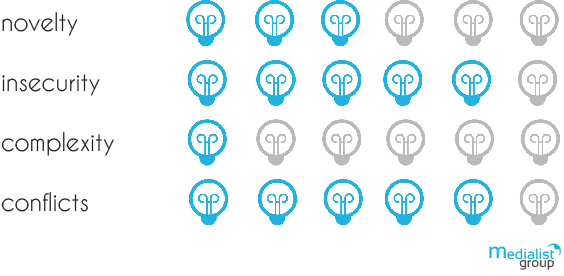It has been several years since Google Glass dominated the media. The tech giant Google launched its first Augmented Reality glasses and made them available to selected beta testers. He finally discontinued the programme in January 2015. This week, however, Anat Karni from Plataine presented the successor at a cloud computing conference in San Francisco. With a new design, new software and a new target group.
The “Google Glass Enterprise Edition”, based on an app from the software company Plataine, is aimed at production workers with the new model. After the first model failed especially in everyday use, Google is now concentrating on the industry sector 4.0 with the new edition of Google Glasses.
The special thing about the new version is also that it is equipped with artificial intelligence and understands the spoken word. The Israeli company Plataine has developed the application together with Google’s AI department and aims to optimize and digitize processes in factories and production facilities.
“Many of you probably remember Google Glass from the consumer days-it’s baaack, […]Glass has become a really interesting technology for the enterprise.” – Jennifer Bennett, technical director to Google Cloud’s CTO office
Google Glass ensures efficient processes in the factory
On stage, Anat Karni, Plataine’s product manager, presented the industrial functions of Google Glass. In a short demo he showed how employees log in daily with Google Glass, report production problems and get useful information to solve the problem projected directly into the field of vision.
The voice control allows additional information to be called up quickly without the employee having to operate an additional keypad. For example, if he says: “Help me choose the material”, the app responds to the command, as we are used to from Alexa or Siri, and gives him suggestions as to which materials would be suitable for the task.
Plataine is currently also working with customers such as GE, Boeing and Airbus to make the app even more functional. An image recognition function is designed to make Google’s Smart Glasses even smarter and more powerful.
If necessary, plant managers can also join in and follow the production operation live from the employee’s point of view.
Innovation Profile: Google Glass Enterprise Edition
Google realigns itself with the improvements of the Glasses. Since the consumer version was neither technically nor functionally mature, switching to industrial customers is a clever method to reach an innovation-driven target group. In the innovation profile, they perform as follows:

The new Google Glass takes full advantage of the latest technological possibilities. With the addition of Artificial Intelligence and Voice Recognition, they combine the best functionalities for industrial hardware currently available on the market. Since there are still many of the well-known functionalities at the same time, the novelty must be assessed with an average value.
The complexity however seems dwindling low. With voice commands and fast and intuitive operation, Smart Glass can quickly find supporters among employees. However, one function drives insecurity and conflict potencial up. Due to the possibility that the supervisor can easily switch to the glasses to monitor his employees, there is a high potential for abuse, which must be critically evaluated.
Conclusion: With the new edition of Google Glass, the group is reacting to the increasing spread of Smart Glasses in the industry. With its range of functions and the planned expansions, the technology has great potential to become an essential component of Industry 4.0.
Post Picture: Google

